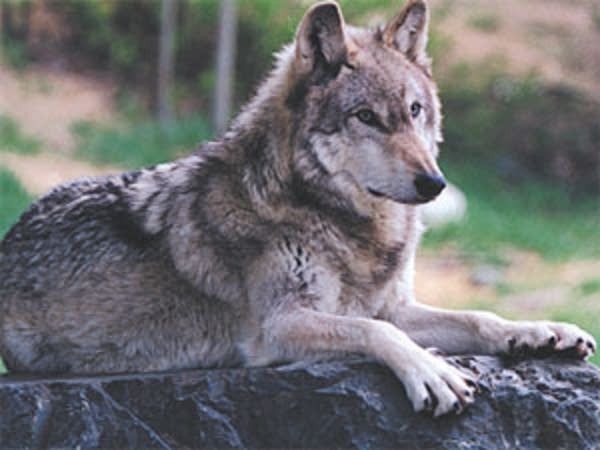Farmers and ranchers upset with wolf ruling

Many Upper Midwest livestock producers are dissapointed with a federal court ruling that returns the gray wolf to protected status in the region.
Last week, U.S. District Judge Paul Friedman in Washington, D.C., overturned the Bush administration's decision to remove gray wolves in the western Great Lakes region from the endangered list.
Friedman sided with environmental groups that accused the government of misreading the law last year when it lifted federal protections for about 4,000 wolves in Michigan, Minnesota and Wisconsin.
The ruling means people can no longer kill wolves to protect livestock or pets. They can only kill a wolf if there's an immediate danger to human safety.
Create a More Connected Minnesota
MPR News is your trusted resource for the news you need. With your support, MPR News brings accessible, courageous journalism and authentic conversation to everyone - free of paywalls and barriers. Your gift makes a difference.
"All it means is the wolves win."
The state's largest concentration of wolves is in northern Minnesota, but Jeremy Geske with the Minnesota Farm Bureau says a lot of farms are in northern Minnesota as well. He says the tightened regulations could lead to more livestock losses as wolves prey on sheep and cattle.
A sheep farmer in northern Wisconsin says he has watched a growing pack of wolves harass his sheep and kill one. He says he can't believe the judge's ruling.
"All it means is the wolves win," said Merrill Rosenwinkel of Herbster, in far northern Bayfield County. "It is discouraging is what it is. It would be nice if we could go back to when there weren't any wolves here."
In March 2007, federal officials removed the gray wolf from endangered lists in those states, handing over management to state and tribal governments, completing the so-called "delisting" effort first announced by the U.S. Interior Department in 1998.
The Humane Society of the United States and several other groups sued, claiming the government had acted illegally and more caution was needed before the wolf protections were lifted. The groups warned that if more hunting were allowed, wolf populations could drop significantly in a few years.
With the judge's ruling, problem wolves in the affected region now can only be trapped and relocated, leaving farmers and ranchers with just nonlethal means, such as noisemakers, to scare them away.
(The Associated Press contributed to this report)
